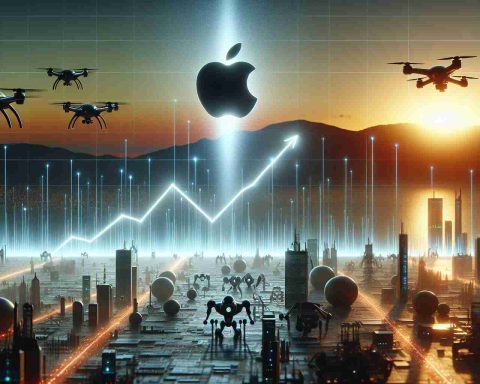Blockchain technology, known primarily for cryptocurrencies, is stepping into the mental health arena, offering transformative possibilities that could reshape the industry. As mental health awareness grows globally, the demand for innovative solutions has never been higher. Blockchain offers a decentralised, transparent, and secure system that could enhance confidentiality, streamline patient data management, and revolutionise the delivery of mental health services.
Privacy and Data Security are paramount in mental health care. Blockchain’s encryption mechanisms can ensure that sensitive patient information remains secure and private, accessible only to authorised individuals. This technology drastically reduces the chances of data breaches and unauthorised access, building trust among patients and practitioners.
With Transparent Record-Keeping, blockchain enables the creation of immutable, time-stamped records. This function facilitates the reliable tracking of a patient’s treatment, ensuring continuity and accuracy across different health service providers. Such transparency can also support research endeavours by providing anonymised but credible datasets for analysis.
Smart Contracts can automate and enforce terms between therapists and clients, enhancing efficiency and reducing administrative burdens. These contracts can ensure that therapeutic sessions and payments are secure and transparent, creating a trustworthy ecosystem for all parties involved.
As blockchain technology matures, its integration into mental health care could mark a significant leap forward, fostering a more connected, secure, and responsive system. Although still in its infancy, this potential paradigm shift presents exciting prospects for the future of mental health solutions globally.
Revolutionising Mental Health Care: How Blockchain Paves the Way
The advent of blockchain technology in mental health care heralds a new era of possibilities, particularly regarding enhancing privacy, data security, and operational efficiency. As we grapple with an increasing global mental health crisis, the potential impacts of integrating such technology on the environment, humanity, and the economy warrant examination.
Impact on Humanity
At the heart of mental health services is the trust between patients and providers, which is crucial for effective treatment. Blockchain’s ability to secure patient data and enhance privacy could foster a more trusting relationship, as patients feel more comfortable sharing sensitive information. In societies where mental health stigma still persists, this security may encourage more individuals to seek help, leading to improved mental health outcomes on a global scale.
Blockchain’s capability for transparent record-keeping offers a consistent and comprehensive view of a patient’s treatment journey. This can lead to more effective and personalised care, reducing mistakes and ensuring continuity even when changing providers. Moreover, reliable datasets can accelerate research into mental health conditions, potentially generating new insights and treatments that could benefit millions worldwide.
Economic Considerations
The economic implications of blockchain in mental health care are significant. By reducing administrative burdens through smart contracts, health care providers can allocate more resources to patient care, improving service quality while lowering costs. Automating routine tasks and securing data can lead to financial savings and attract investment into digital health innovations.
Furthermore, the global demand for advanced mental health solutions presents new opportunities for economic growth. Blockchain technology can be a cornerstone for developing digital health systems, creating jobs and stimulating technological advancements. It incentivises investments into tech-driven health care sectors, expanding the digital economy’s horizons.
Environmental Impact
The environmental considerations of blockchain in mental health care primarily revolve around the energy consumption associated with blockchain networks. As the technology scales, it is crucial to address and mitigate its carbon footprint. Innovations in blockchain energy efficiency, such as transitioning to less energy-intensive consensus mechanisms, can help minimise environmental impacts, aligning technological advancement with global sustainability goals.
Future Connections
In envisioning the future of humanity, blockchain’s application in mental health care offers a pathway to more inclusive, flexible, and responsive health systems. Enhanced privacy and data security encourage more people to seek help, promoting a broader cultural shift towards prioritising mental health. As mental health services become more efficient and economically sustainable, they could be equitably accessible worldwide, reducing disparities in mental health care provision.
Blockchain’s contribution to mental health care reflects a broader trend of digital transformation across sectors. Its success in this arena could spur further integration into other areas of health care and beyond, helping us transition to a future where technology empowers and connects global communities, ensuring better outcomes for all.
Revolutionising Mental Health: Blockchain’s Unexpected Role
As blockchain technology evolves beyond its cryptocurrency origins, it is beginning to emerge as a key player in transforming the mental health industry. The intersection of blockchain and mental health offers innovative and secure possibilities that can revolutionise how mental health services are delivered and experienced.
Emerging Trends in Blockchain for Mental Health
One of the most promising aspects of blockchain technology is its potential to redefine data privacy and security within mental health care. As concerns over data breaches grow, blockchain’s decentralised and encrypted systems provide a robust solution, safeguarding patient information and only granting access to authorised professionals. This enhanced level of data security builds trust among patients, allowing them to engage more freely in their mental health journeys.
Moreover, the trend towards transparent record-keeping via blockchain is gaining momentum. The creation of immutable, time-stamped records ensures a consistent and accurate tracking of treatments, which not only enhances care continuity across providers but also supports mental health research by offering credible, anonymised datasets.
Blockchain Innovations: Smart Contracts in Therapy
Smart contracts represent a significant innovation made possible by blockchain technology. These self-executing contracts can automate and secure the administrative processes between therapists and clients, such as session schedules and payment processing. This reduces administrative burdens, enhances efficiency, and fosters a trustworthy and transparent ecosystem for all parties involved.
Pros and Cons of Blockchain in Mental Health
Pros:
– Enhanced Security: Blockchain’s encryption mechanisms provide unparalleled data protection.
– Transparency and Accountability: Immutable ledgers foster transparency and ensure consistent treatment records.
– Efficiency: Smart contracts streamline administrative tasks, freeing up time for direct patient care.
Cons:
– Implementation Costs: Initial setup and integration into existing systems can be costly.
– Technical Challenges: Requires expertise and literacy in blockchain technology to maximise benefits.
– Regulatory Hurdles: Adapting blockchain within current legal frameworks poses potential challenges.
Predictions and Future Insights
As blockchain technology matures, its integration into mental health practices is likely to gain traction. We might see the development of blockchain-based platforms specifically designed for mental health services, facilitating better connectivity and resource sharing across the globe. With blockchain’s capacity to offer secure, transparent, and efficient solutions, it could redefine mental health care on a global scale.
For more insights into blockchain technology and its multifaceted applications, visit IBM for comprehensive resources on blockchain innovations. As this technology continues to develop, its deployment in mental health signifies a paradigm shift with the potential to enhance care and improve outcomes significantly.

















